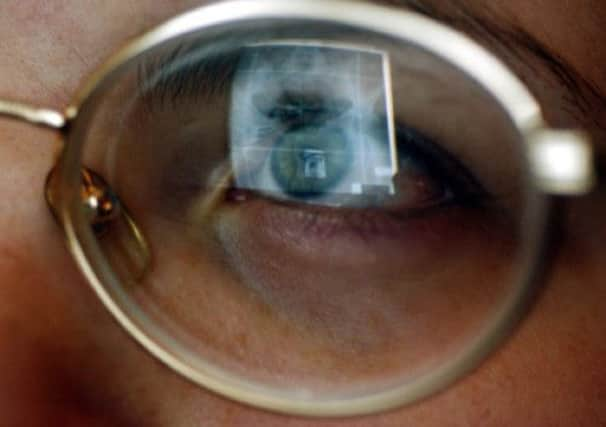Scourge of breast cancer ‘can be beaten by 2050’


Women are continuing to be put at risk because of a failure to make breakthroughs in key areas for potential lifesaving research, including the role of genetic changes in the development of breast cancer, improvements in targeting women for screening, and identifying lifestyle changes which could reduce the chances of developing the killer disease.
A separate report, also released today, has revealed that 50 per cent of women in Scotland do not check their breasts regularly for the signs of cancer. And 61 per cent of those surveyed said they “simply forgot”.
Advertisement
Hide AdAdvertisement
Hide AdAccording to the latest statistics, 4,604 women in Scotland were diagnosed with breast cancer in 2011 and 1,041 people died. About 50,000 women are diagnosed each year in the UK.
But the new research, commissioned by the Breast Cancer Campaign and carried out by experts at Dundee University and the Institute of Cancer Research, has suggested that tens of thousands of lives could be saved – and breast cancer finally defeated – if vital gaps in research are addressed through greater investment, collaboration and a renewed focus on the disease.
Baroness Delyth Morgan, chief executive of the Breast Cancer Campaign, warned: “If we don’t act now, by 2030 more than 1.2 million women could be living with or after a breast cancer diagnosis and around 185,000 lives could have been lost.
“We want future mothers, daughters and wives to have their breast cancer prevented, cured or for them to outlive the disease, and hope that together we can achieve this by 2050.”
The “gap analysis” research, published in the international journal, Breast Cancer Research, has identified ten critical gaps in research, in areas such as genetics, prevention, diagnosis, treatment and support. It is claimed that if these issues are properly addressed, there will be a significant impact on the lives of those affected by breast cancer.
Professor Sue Eccles, one of the leading researchers from the Institute of Cancer Research, said: “We’ve known for some time that breast cancer is not just one disease, but our understanding has increased enormously in the five years since the first gap analysis in 2008.
“We now know that breast cancer cells can have different characteristics, even within the same tumour, and these can also change over time.
“This makes it much more complex to research and is why we need greater collaboration between multi-disciplinary teams and an improved infrastructure, to ensure we are getting the data and tissue samples needed to advance our research knowledge.”
Advertisement
Hide AdAdvertisement
Hide AdAlastair Thompson, co-author of the report and professor of surgical oncology at Dundee University, said: “Globally what we need to do is do better in terms of targeting resources.
“And that doesn’t just mean money – it means researchers and the multi-disciplinary teams that already work very successfully to treat breast cancer working more together to individualise the treatment for women with breast cancer better than we have achieved to date.
“By doing that, we should be able to apply what we know more effectively and also plug some of the gaps in our understanding and therefore save many more lives.
“Potentially, we could stop something of the order of 185,000 women dying over the next 15 to 20 years.”
He explained: “The impact of the gap analysis could be immediate as it gives us scientific rationale to change clinical practice.
“For example, currently, metastatic disease is not biopsied in order to tailor treatment, but this could change the way one in six women is treated and provide hope to women with secondary breast cancer, with limited treatment options.”
A spokeswoman for the Breast Cancer Campaign said: “The findings have informed our new action plan which sets out our hopes and ambitions for the future for the prevention and treatment of breast cancer and how the scientific community, funding organisations, industry, policy makers and government must now join forces to address the gaps. The charity aims to raise £100 million over the next decade to specifically tackle the critical gaps and help make this happen.”
James Jopling, Breakthrough Breast Cancer’s director for Scotland, said: “With the right funding for charities such as Breakthrough Breast Cancer and Breast Cancer Campaign, it’s a case of when, not if we beat this disease”
Advertisement
Hide AdAdvertisement
Hide AdHe said: “It’s shocking that despite being the most commonly diagnosed cancer amongst women in Scotland, half of women do not check their breasts regularly, and nearly all still do not know five common signs and symptoms of breast cancer off the top of their head.
“We know that early diagnosis saves lives, so it’s incredibly important that women know what to look out for and to check regularly.”
The Scottish Government said: “The Scottish cancer taskforce is taking forward a range of activities, such as the £30m ‘detect cancer early’ programme, radiotherapy and transforming care after treatment.”
SEE ALSO: